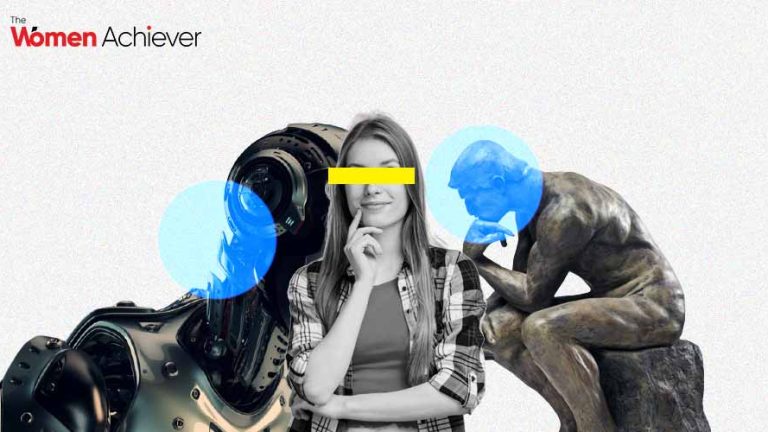Women in tech shaping the future with the collaboration of AI and robotics
Robotics and artificial intelligence (AI) are two of the most revolutionary technologies of our day, changing entire sectors and our way of life at work and home. The important contributions made by women in tech who are leading the charge in influencing these disciplines’ futures must be acknowledged and celebrated as they continue to progress. Women have broken down boundaries, made ground-breaking discoveries, and set the standard for innovation in AI and robotics in a field that has historically been dominated by men.
This article delves into the outstanding accomplishments and viewpoints of tech women who are promoting gender diversity, collaboration, and advancement in different domains.
Women Leading the Charge in Robotics and AI
When it comes to pursing jobs in science, technology, engineering, and mathematics (STEM), women have historically encountered numerous obstacles. Nevertheless, several trailblazing women in tech have achieved notable advancements in robotics and AI in spite of these challenges. One well-known person in AI research is Dr. Fei-Fei Li. Her research in machine learning and computer vision has paved the way for the creation of technologies used in self-driving automobiles and image identification systems. Another prominent woman in the field, Dr Cynthia Breazeal, is renowned for her groundbreaking work in social robotics, especially for developing Kismet and then Jibo, which significantly advanced human-robot interaction.
Breaking Stereotypes and Bridging Gaps
In addition to their technical achievements, women in AI and robots are successful because they dispel preconceptions and serve as role models for younger generations. Women can run profitable AI businesses and shape the course of the sector, as demonstrated by Dr Rana el Kaliouby, the CEO and co-founder of Affectiva. With its expertise in emotion AI, Affectiva finds use in a wide range of industries, including mental health and market research.
In addition, women are contributing significantly to closing the gender gap in these professions. A more inclusive AI and robotics community is actively being created by groups like Women in AI and AnitaB.org. They make sure that women in technology have resources, networking opportunities, and mentorship, so that their voices are heard and their abilities are acknowledged.
Collaboration as the Driving Force
The focus that women have placed on collaboration is among their greatest contributions to the fields of AI and robotics. In these domains, teamwork is critical to advancing innovation and resolving complicated issues, and women are setting the standard for collaboration among scientists, engineers, and business experts.
Women have fought to increase access to AI education for individuals all across the world, including Dr. Daphne Koller, a co-founder of Coursera. With the help of Coursera’s online courses in robotics, AI, and machine learning, students from a variety of backgrounds can gain critical skills. Dr. Koller’s dedication to democratizing AI education serves as an example of how important teamwork is in disseminating knowledge and skills.
Through interdisciplinary research, women are also actively fostering collaboration in the academic setting. Robotics, computer science, and electrical engineering expert Dr. Daniela Rus is the director of MIT’s Computer Science and Artificial Intelligence Laboratory. Her work demonstrates the effectiveness of multidisciplinary collaboration by spanning multiple sectors, including robotics and healthcare.
The Intersection of AI and Robotics
The convergence of AI and robotics is bringing forth both new opportunities and difficulties. In order to ensure that AI-powered robots are developed and used in an ethical and responsible manner, women in tech are playing a critical role in this convergence. Leading authority in robot ethics, Dr. Kate Darling, has studied the moral and emotional ramifications of human-robot relationships. Her research highlights how crucial it is to take social and emotional factors into account while developing AI and robotics.
Women are also promoting cooperation between AI and robotics businesses in the business sector. The Centre for Security and Emerging Technology (CSET)’s director of strategy, Dr. Helen Toner, focuses on the relationship between AI and national security. Her initiatives show how, in order to meet the problems presented by AI-powered robotics in defence and security, collaboration between the tech sector, legislators, and experts in national security is essential.
Conclusion
Without a doubt, women are influencing how AI and robotics collaborate in the future. Their accomplishments, initiative, and commitment are fostering inclusivity and diversity in various domains in addition to technological advancement. As we honour their accomplishments, we must also recognize that a diversity of viewpoints and ideas is critical to addressing the intricate issues that robotics and AI pose.
In addition to shattering stereotypes, women are paving the way for a time when technology will benefit all people. As we all work together to create a more innovative, collaborative, and optimistic future, it is our responsibility to encourage and empower women in robotics and AI.










Add comment